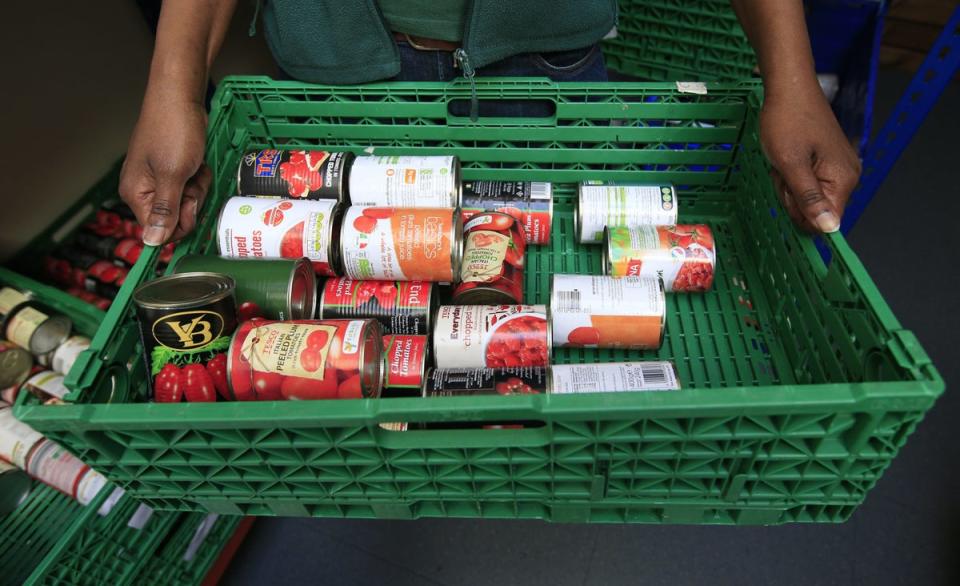Surge in number of 18 to 25-year-olds coming to food charities for help for the first time
Young people are increasingly turning to charities and food banks for urgent help for the first time, new data has shown.
The number of charities seeing 18-25 year olds asking for food support has doubled in the last year as the cost of living crisis bites. One charity supporting young people aged 14 to 25 in Hull, The Warren, said they had seen a “substantial increase” in the number of people needing emergency food.
In 2022/23, 16 per cent of charities surveyed said that people using their service for the first time were young people aged 18-25. This jumped to 31 per cent in 2023/4.
Over half of the charities and community groups – 52 per cent – also reported increased demand during key holiday periods, with afterschool and breakfast clubs in high demand. Food waste charity FareShare who carried out the research said there had been a big increase in care leavers needing emergency food provisions.
The number of charities receiving requests for food support for the first time from young people in care and care leavers was 159 in 2023, compared to 50 the previous year, the organisation said.
The charity surveyed more than 7000 charities across the UK and received around 1400 responses. As many as 292 charities reported young people accessing food support for the first time in the past year.

Caroline Gill, food and nutrition lead at The Warren, said: “Many young people in Hull live in supported accommodation and are trapped in a poverty cycle, resulting in more requests for food that requires little or no cooking - due to fuel poverty”. She said that the charity are rarely have anything left on the days when they give out food parcels.
It is also not just those on benefits or the unemployed who are needing food. Over half of all visitors who are first-time users of charity services – some 54 per cent – are in part time or full-time employment.
George Wright, CEO of FareShare said that young people should be “looking ahead to a brighter future, not worrying about what they have to eat”.
He added: “The government also have a key role to play. The UK lags behind Europe and the US in redistribution of surplus food, where tax and legislative regimes are much more favourable. By levelling the playing field, we can make the UK a leader in tackling food waste.”
Helen Barnard, director of policy at the Trussell Trust, said that the food banks that they helped run are “a sticking plaster”. She added: “There is a generation growing up believing that a food bank in every community is normal, but it shouldn’t be this way.”
Paul Carberry, chief executive at Action for Children, said: “No young person in the UK should be worried about where their next meal is coming from.
“These figures are all the more alarming for those in or leaving the care system who often have fewer resources, smaller support networks, and no safety net. As children, many will have experienced trauma, upheaval and instability. They shouldn’t be relying on handouts just to get by as young adults.”
Clare Bracey, from children in care charity Become, said: “We know from the young people we work with how much they struggle financially when they’re made to leave care at 18, sometimes younger, without a safety net to fall back on.
“In an ongoing cost-of-living crisis, shopping for food is often last on the list for young people trying to pay their rent and manage bills to prevent losing their home, because they’ve no one to turn to if that happens.”
Food waste charity FareShare delivers surplus food to 8,500 local charities across the UK.


